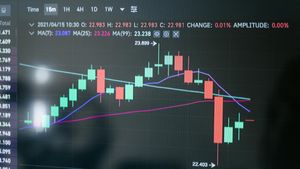The Trump administration has faced numerous legal and political challenges since President Donald Trump took office, with immigration policies becoming one of the most contentious subjects. The administration's aggressive approach to deportation and executive orders aimed at reforming U.S. citizenship have sparked backlash not only from immigrant communities but also from state governments and advocacy groups.
On January 20, 2017, the very day of Trump's inauguration, he signed an executive order attempting to end birthright citizenship for children of illegal immigrants. This action was immediately met with legal challenges. The American Civil Liberties Union (ACLU) filed a lawsuit asserting the order, titled "Protecting the Meaning and Value of American Citizenship," was unconstitutional. The group claimed the right to citizenship is enshrined under the 14th Amendment. Trump's order drew widespread opposition from 18 Democrat-led states which launched their own lawsuit, citing the unprecedented nature of the president's actions. "The President has no authority to rewrite or nullify a constitutional amendment or duly enacted statute," argued various state attorneys general.
Meanwhile, tensions were rising within immigrant communities, amplifying fears of raids and deportations. On January 7, 2017, reports flooded immigration advocates' phones in Bakersfield, California, detailing Border Patrol conducting significant operations throughout the area. These operations, which officials categorized as "targeted enforcement," were purportedly aimed at undocumented immigrants with criminal records. The reality, according to many advocates, was starkly different; they saw it as racial profiling targeting vulnerable communities. Antonio De Loera-Brust from the United Farm Workers (UFW) commented, "There's a lot of fear, a lot of anxiety for everyone with an undocumented loved one," emphasizing the pervasive concern within Latino households.
Contrary to the Border Patrol’s claims of professionalism, local farmers and community leaders alleged rampant discrimination during these operations. Reports suggested agents set up checkpoints and performed random stops based solely on the drivers’ ethnic appearance. Ambar Tovar, director of legal services for the UFW Foundation, expressed disbelief at the Border Patrol's assertion, indicating the operations targeted agricultural workers and day laborers at locations known for their immigrant labor forces.
This remarkable operation had far-reaching consequences, as reflected by the chilling effect on Kern County’s agricultural sector. Casey Creamer, president of California Citrus Mutual, noted, “The people who got targeted get up to go to work at 5 or 6 a.m.. They work hard and then go home to their families.” Following these raids, estimates indicated about 25% of the immigrant workforce stayed home from work, resulting in immediate ramifications for the California citrus industry, which heavily relies on this labor.
The community's anxiety was not unfounded. Those who had been detained reported mistreatment, being transported over long distances without legal support, and pressured to sign documents apart from formal legal proceedings. Many detainees found themselves immediately returned to Mexico, having waived their rights during the apprehension process, much to the dismay of local advocacy organizations.
Even local officials found themselves blindsided, urging the federal agency to communicate plans for any future operations to prevent widespread panic. "I have received numerous calls from constituents expressing fear for their families’ safety, and I do not support inciting concern," stated Rep. David Valadao. His comments reflected common sentiments from those external to the immigration enforcement agencies, aiming to balance community safety with policy enforcement.
The ramifications of these operations juxtaposed starkly with Trump's executive orders, which continued to roll out throughout his administration. One of the most notable being the directive aimed at freezing federal funding for certain diversity and inclusion programs. Legal challenges soon followed, with organizations and states organizing against perceived discrimination within these policies. Six transgender military members, for example, filed suit against the administration's ban, arguing it lacked constitutional basis—a sentiment echoed by advocates across various sectors of society.
These multiple layers of legal challenges paint a vivid picture of the turbulent political climate surrounding immigration during Trump’s presidency. The legal struggles not only exemplified responses to unjust policies but also highlighted the deep-seated fears running rampant within communities affected by these dramatic shifts. Trump’s approach—and the extreme measures taken by federal agents—serve as reminders of the adversities many immigrants face and the unyielding resolve of activists fighting for their rights.
Overall, the fallout from these political and legal confrontations continues to shape the dialogue around immigration, drawing attention to the responsibilities of government leaders and the resilience of communities caught at the intersection of policy and personal lives.



